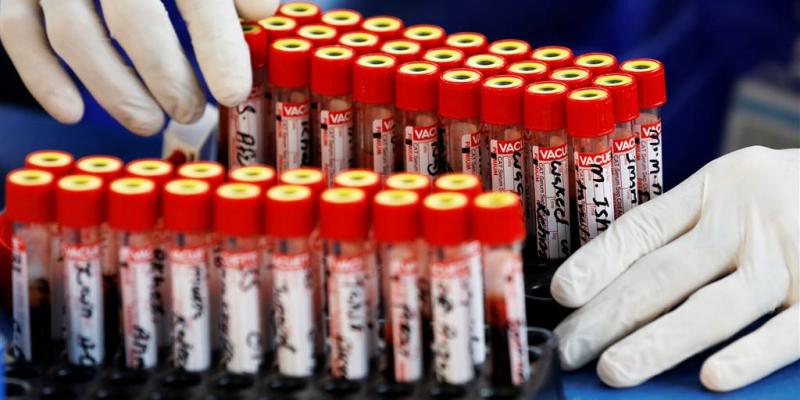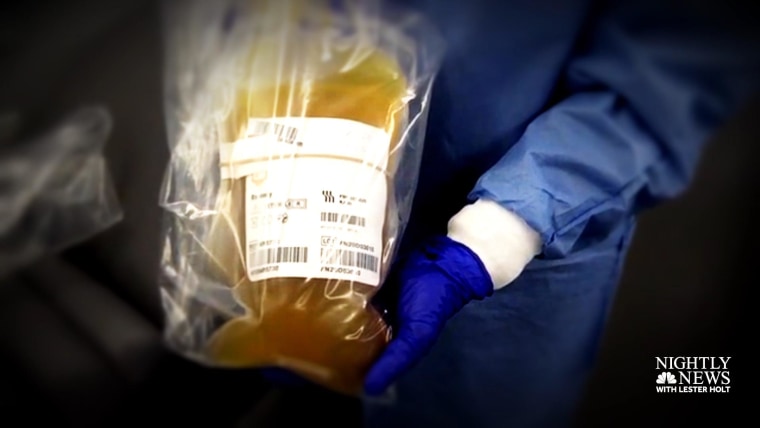What's your blood type? It may affect your risk for Covid-19



A growing body of evidence suggests that blood type may play a role in the risk of becoming infected with the coronavirus or developing life-threatening complications from the illness.
But it does not mean that any single blood type is more protective or more dangerous regarding Covid-19, and the evidence may indeed raise more questions than answers.
Two studies on the topic were published Wednesday in the journal Blood Advances, a publication of the American Society of Hematology.
In the first, researchers in Denmark looked back at data on 473,654 people tested for Covid-19 from February to July. Most results were negative; just 7,422 tests came back positive.

Coronavirus survivors form online group to connect plasma donors, current patients
Blood type, the researchers found, stood out as a potential key difference between the two groups.
"Blood group O is significantly associated with reduced susceptibility to SARS-CoV-2 infection," the study authors wrote, meaning that people with type O blood seemed to be less likely to become infected. SARS-CoV-2 is the virus that causes Covid-19.
The findings of the study are limited because blood type information was available for just 62 percent of those who were tested.
It is also important to note that people with type O blood can and do become infected.
"The study suggests if you have type O, you have a slightly lower risk," Dr. Roy Silverstein, chair of medicine at the Medical College of Wisconsin, said. "But it's a small decrease," he said, adding that blood type does not equate to zero percent risk. Silverstein, who is also a former president of the American Society of Hematology, was not involved with the new studies.
What's more, Silverstein pointed out, the new research will not alter how doctors treat Covid-19 patients.
"They're not going to treat someone who comes into the hospital with type O differently than type A," he said. "The differences are just not that large."
Still, a second smaller study also published Wednesday seems to boost those findings. Researchers in Canada looked at data on 95 Covid-19 patients in Vancouver from February to April. All were sick enough to be hospitalized in intensive care units.
Again, researchers found differences in blood types. This time, certain types appeared to be associated with worse outcomes.
"A higher proportion of Covid-19 patients with blood group A or AB required mechanical ventilation and had a longer ICU stay compared with patients with blood group O or B," the study authors wrote.
Types A and AB were also more likely to need a type of dialysis that helps the kidneys filter blood without too much pressure on the heart.
There are important caveats to consider from the new research. There is zero indication that any blood type is either totally protective or dooms a patient to severe outcomes of Covid-19.
Public health officials say that people with any blood type need to take the same mitigation precautions, such as wearing a mask and maintaining physical distancing and effective hand-washing. These studies only suggest an association between blood types and Covid-19 outcome, not cause and effect.
Still, a link between blood type and severity of diseases is not unheard of. People with blood type O, for example, tend to become sicker from cholera than people with other blood types. Cholera is a bacterial infection that affects the small intestine.
Silverstein called the new research "interesting cocktail party conversation."
Maybe with further study, he said, "it could lead to new approaches for prevention or therapy."
"But at the present time, there is no reason to think that if you have type O blood, you're protected from Covid-19."



Okay, I KNOW I'm not protected, and that I am among the more prone to a bad outcome, but at least my blood type is O RH positive. I know because I have been a blood donor and carry a donor ID card.
O positive here.
O- here. A universal donor and normally give plasma. But I am leery of donating this year. I've been ignoring all of the Blood Bank's messages and emails pleading for my blood (I feel guilty).
Nice to know I might have an edge against the virus though.
I donated for the first time in years back in August. The Red Cross here only has blood drives during business hours, for the most part. Makes it hard for people with 9 to 5 jobs to donate. The latest one was open until 7 or 7:30, but that's pretty unusual.
A-negative. Fabulous. Watch me catch it again. And again. And again.
Waiting for someone to complain that this new finding is yet again another example of science 'changing its mind' and that we should ignore scientific findings. Some cannot comprehend that science is an incremental, errant but self-correcting process and that it is impossible for 'science' to immediately 'know' everything about COVID-19 and its effects on our bodies.
O-Neg here...... The blood vampires love me when I come in....... " Would you like to donate a double....?"
Didn't we hear something like this back in March?
My daughter had a 5% chance of being O-... she's O-.
I'm O+, my husband (son's dad) is O+, my ex (daughter's dad) is O+, my son is O+, but because my ex's dad and my mother are both O-, it provided that really slim chance for my daughter to be O-.
Take her to the casino Ms. Aubrey...... your retirement funds may just get a boost.
In genetics I think that's known as a "throwback", it also happens with eye colours.
She's only 17, so not old enough yet.
Yes. Brown is supposed to be dominant. I have brown eyes. My daughter has blue. My ex has blue eyes. My current husband has blue eyes, but our son has brown like mine.
The first I heard about this was in March and then it was reported here on NT somewhere around July and now here again in October. BTW, as before, I am still O- as well as the rest of my close family, except my dad is O+.
AB Negative for me.
Be careful.